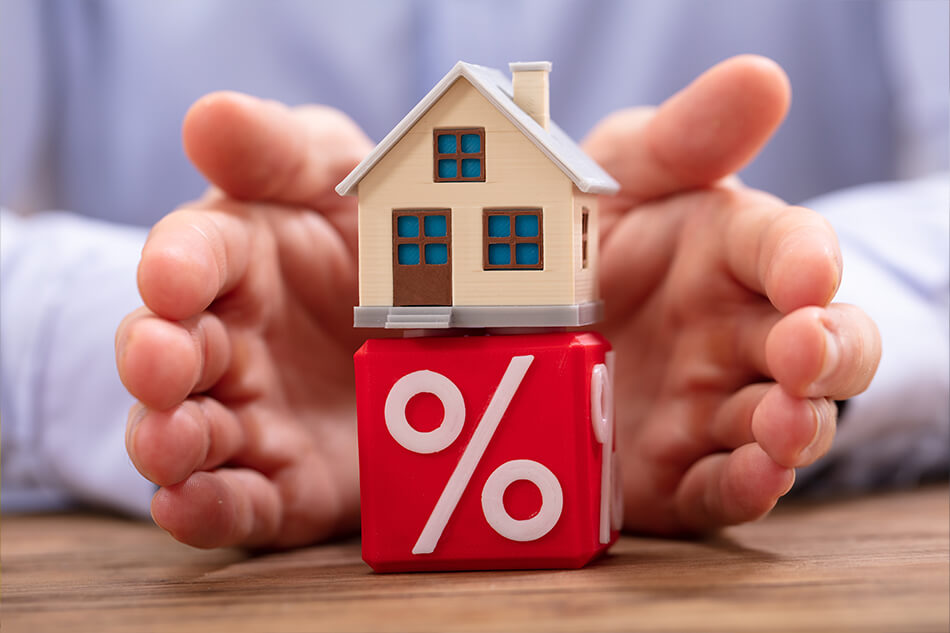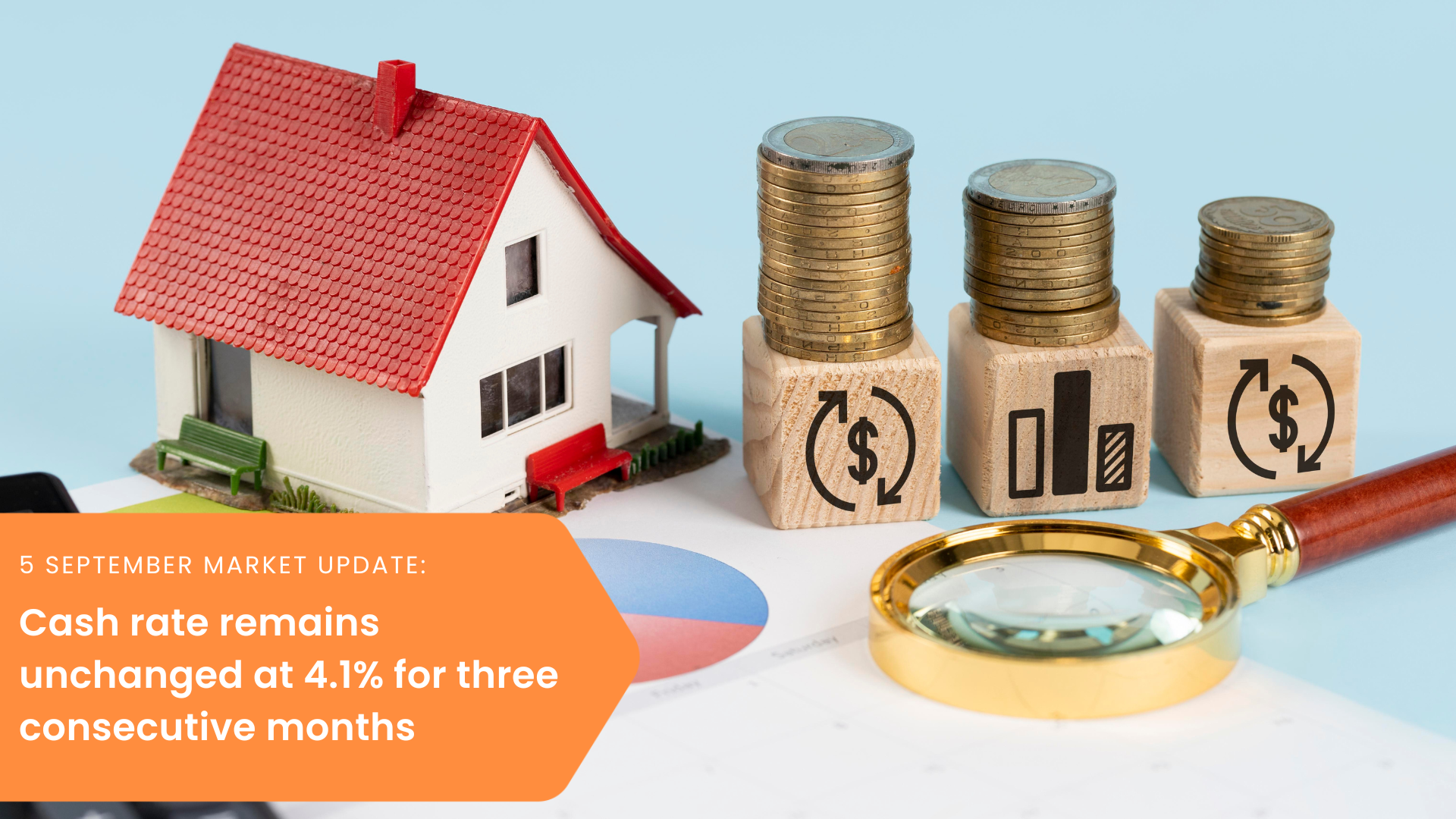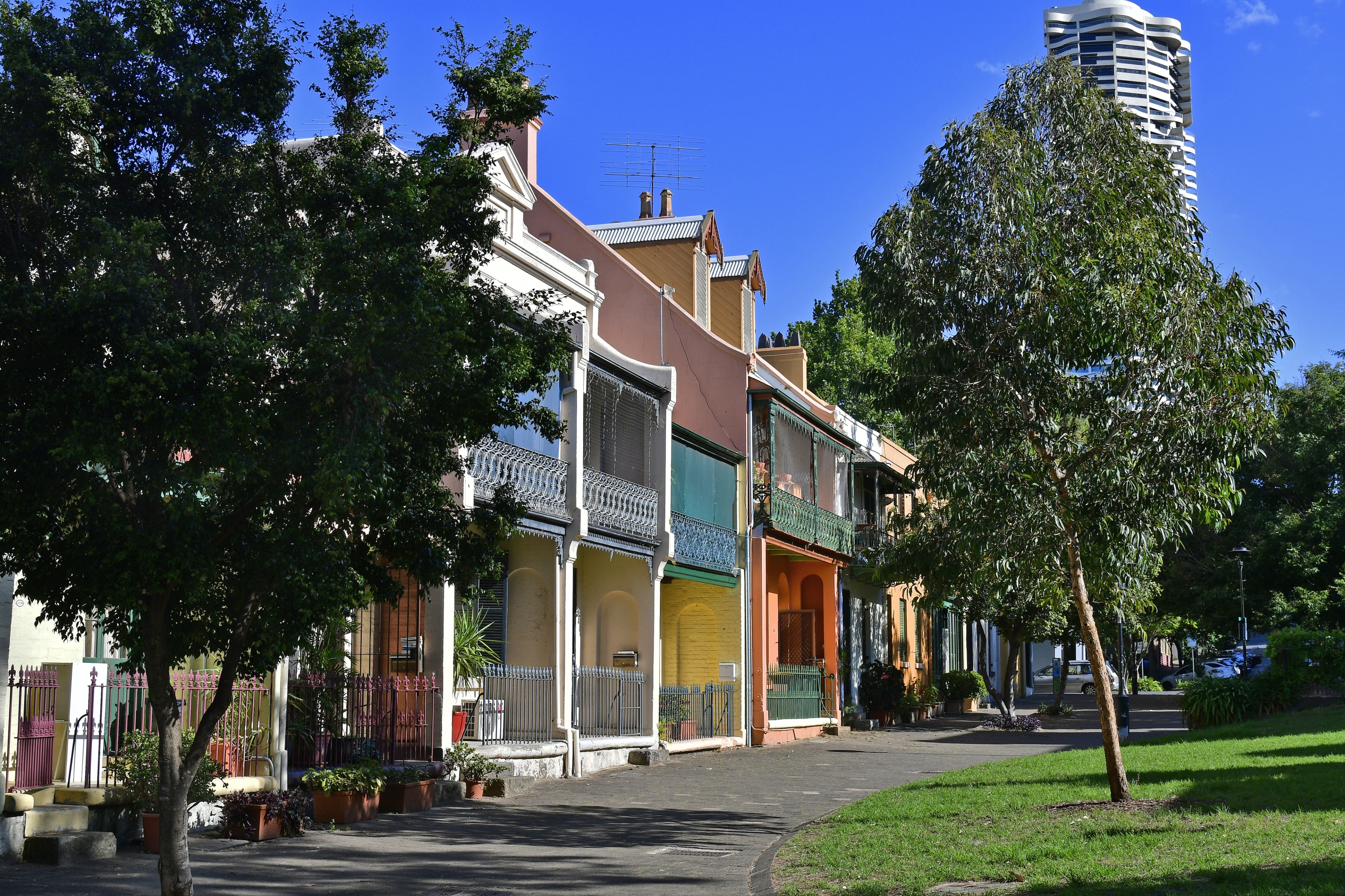- Key Takeaways:
- What do interest rates mean?
- How much have interest rates risen?
- Why have interest rates increased?
- What do interest rate rises mean for homeowners?
- What do interest rate rises mean for future home buyers?
- Are there any advantages for homeowners?
- How can you minimise the impact of rising interest rates?
- Will the interest rate rise again?
- RBA Interest Rates
- FAQs
You may already know that the RBA cash rate has continuously increased over the last few months. But what exactly does this mean? How will rising rates affect your home loan repayments?
No one wants to pay more towards their home loan than they have to. Read on to discover how to discover what the RBA’s increasing interest rates mean for you.
Key Takeaways:
- Rising interest rates could affect your mortgage repayments.
- The RBA predicts future interest rate rises.
- Speaking to a mortgage broker could help mitigate the impact of rate rises.
What do interest rates mean?
Anyone who borrows money will pay interest on the principal amount. When you take out a mortgage, you borrow a sum of money to buy a property you repay monthly over the loan term. Your mortgage payments include interest payments, which differ depending on your lender, circumstances, and the market rate.
The market rate, or cash rate, is a figure set by the Reserve Bank of Australia to maintain the economy. Lenders, banks, and financial institutions use the Reserve Bank’s cash rate to inform their interest rate. Lenders may increase home loan interest rates when the cash rate goes up, which drives borrowing costs up.
How much have interest rates risen?
Australian rates have steadily lowered each year since 2010. During the pandemic, the RBA decreased the cash rate dramatically to a record level of 0.1%. With low rates, many Aussies took advantage and borrowed large sums to buy houses or finance other significant expenses.
However, in May 2022, as we left the pandemic behind, the RBA increased the cash rate by 0.25% to 0.35%. Over the last seven months, the rate has risen to 2.85%. While this doesn’t affect every loan, it might affect you as a homeowner.
What does a 2.85% interest rate mean in monetary terms? Say you borrow $500,000 at a 3% interest rate over 30 years. Your 3% rate will increase by 2.85%, and you will pay more throughout your home loan’s lifetime.
Why have interest rates increased?
When economic growth slows, the Reserve Bank lowers rates to encourage household spending. However, when inflation hits (as we’re seeing now), the Reserve Bank will increase interest rates to encourage saving.
The global economy has undergone significant challenges over the last few years. The global pandemic slowed economic growth. In 2022, the Russian war in Ukraine and other global factors have driven inflation up. Other advanced economies worldwide have increased their official interest rate to combat rising inflation.
What do interest rate rises mean for homeowners?
The impact of rate hikes depends on your home loan type. If you have a fixed-rate loan, you won’t see the effect of changing rates until the period ends or you refinance. However, mortgage holders with variable interest rates will see a difference in their repayments.
A variable rate mortgage fluctuates with the cash rate. As the Reserve Bank of Australia lifted rates, homeowners will pay more monthly for home loan borrowing.
For instance, if the rate rises by 0.25%, a homeowner with a $200,000 mortgage tracking 1.5% above the cash rate will see their monthly payments increase by around $25 each month. If you have another 20 years remaining on your loan term, you could pay an additional $6,000.
What do interest rate rises mean for future home buyers?
If you don’t own a home yet but are considering applying for a mortgage, you may find the cost of borrowing is higher than before. With higher interest rates, lenders may not offer you as much money. Therefore, you might find that you have fewer options when house hunting.
You can increase your borrowing power in several ways, from improving your credit score to offering a larger deposit. The rate rise will improve your saving’s account interest to help you build a significant deposit. Speak to a trusted broker about your financing options and secure the lowest interest rate available.
Are there any advantages for homeowners?
While rate hikes may push up the cost of your mortgage, it’s not all bad news for homeowners. With borrowing costs more expensive, there is less demand for housing. Property prices have dropped 3.4% below their peak in March 2022. While first-time buyers can borrow less, their dream home might be far more affordable.
After record-high house prices in the last few years, many will look forward to lower prices with a more sustainable balance between buyers and sellers. If you wish to purchase a new property, speak to an expert Sydney broker about your options.
How can you minimise the impact of rising interest rates?
There’s not much anyone can do about the Reserve Bank of Australia introducing future interest rate increases. However, you can implement a few steps to make the period ahead more manageable.
1. Boost your credit score
Consider building your credit score to improve your creditworthiness. Borrowers with higher credit scores are considered less risky and usually benefit from lower rates.
2. Refinance
If you have a better credit score than when you first took out your home loan, you could consider refinancing your mortgage to get a more competitive interest rate.
3. Speak to a Mortgage Broker
A mortgage broker can help you secure competitive rates that suit your household budget. Book a free consultation with an expert at Lendstreet to find out your home loan or refinancing options.
Will the interest rate rise again?
Future rate rises are likely. The RBA Governor Philip Lowe has stated that he expects a further increase as the inflation in Australia is too high as is with other countries. Lowe stated earlier this month:
“The Board expects to increase interest rates further over the period ahead. It is closely monitoring the global economy, household spending and wage and price-setting behaviour. The size and timing of future interest rate increases will continue to be determined by the incoming data and the Board’s assessment of the outlook for inflation and the labour market. The Board remains resolute in its determination to return inflation to target and will do what is necessary to achieve that.”
RBA Interest Rates
Hearing that the cash rate has increased might sound overwhelming. With tighter financial conditions and reduced household budgets, you might find it harder to get competitive rates on your mortgage. However, we can help you find the best rates for your situation. Speak to an expert mortgage broker today about your home loan options.
Get the latest news and updates from Lendstreet
Join and subscribe to our newsletter.
FAQs
What is the current RBA interest rate?
As of 1 November 2022, the RBA cash rate is 2.85%.
How much did RBA raise the cash rate?
The RBA governor raised the cash rate by 0.25% as of November 2022. The RBA warns that the interest rate will likely go up again.
What was the highest interest rate in Australia?
In January 1990, the interest rate was between 17 – 17.5%. Since then, we’ve seen higher interest rates of 7.5% in 1995 and 7.25% in 2008.
Related articles
Attention homeowners: the Reserve Bank of Australia (RBA) has recently decided to maintain the cash rate target at 4.10 ...
The Reserve Bank of Australia (RBA) has announced that it will keep the official cash rate unchanged at 3.6%, ...
According to the Economist Intelligence Unit’s (EIU)Worldwide Cost of Living report last December, Sydney is the tenth most expensive ...









